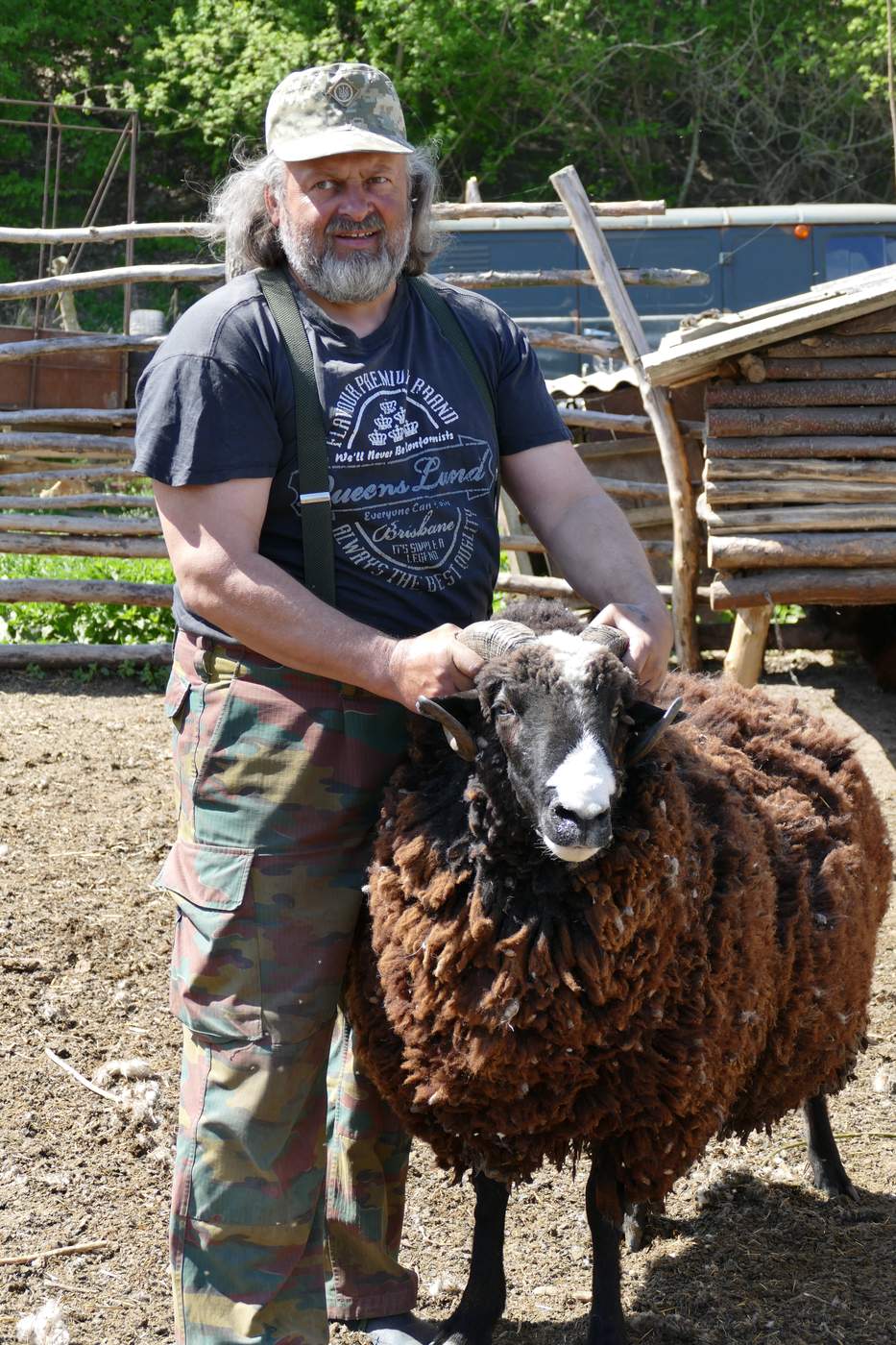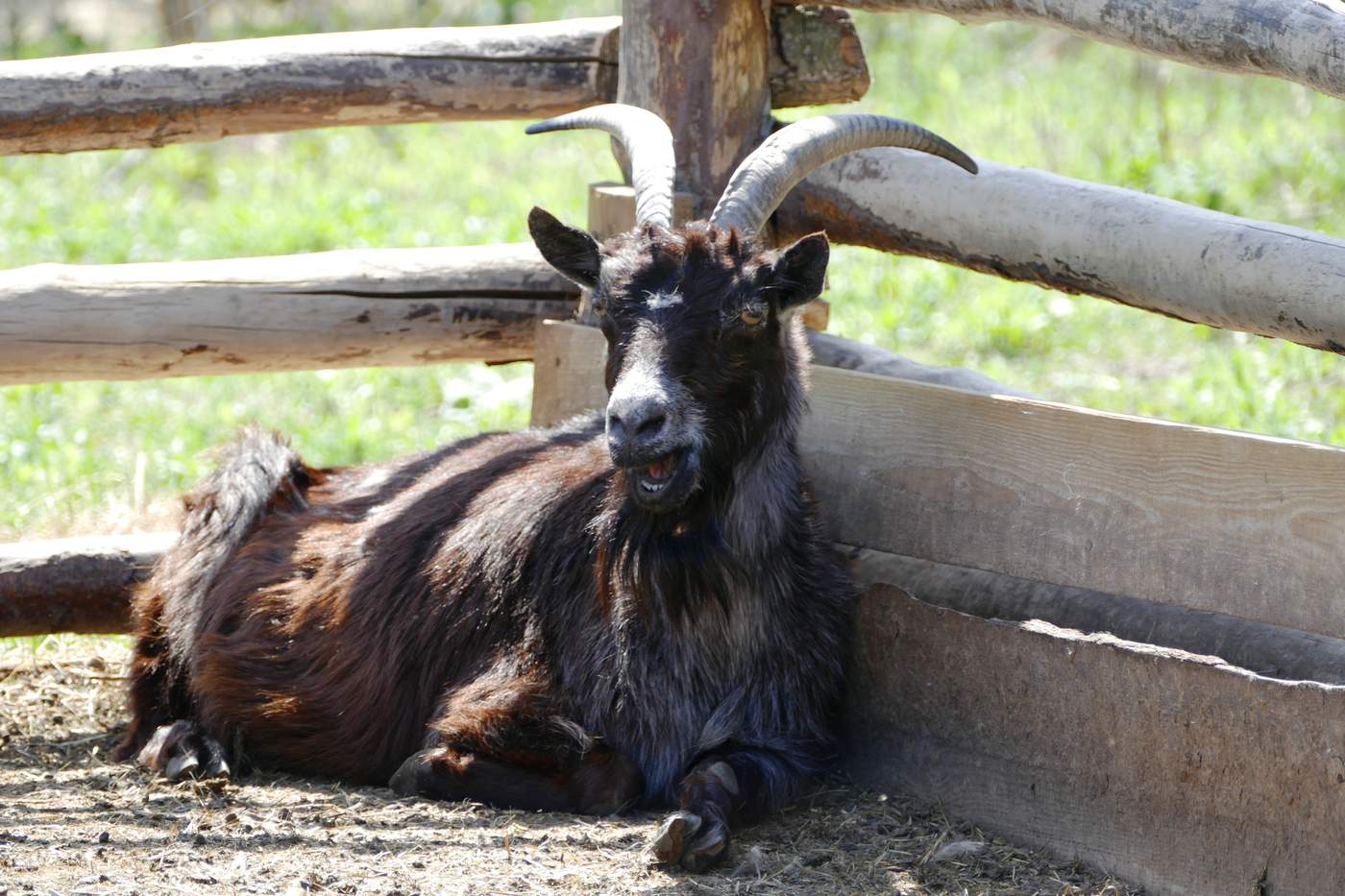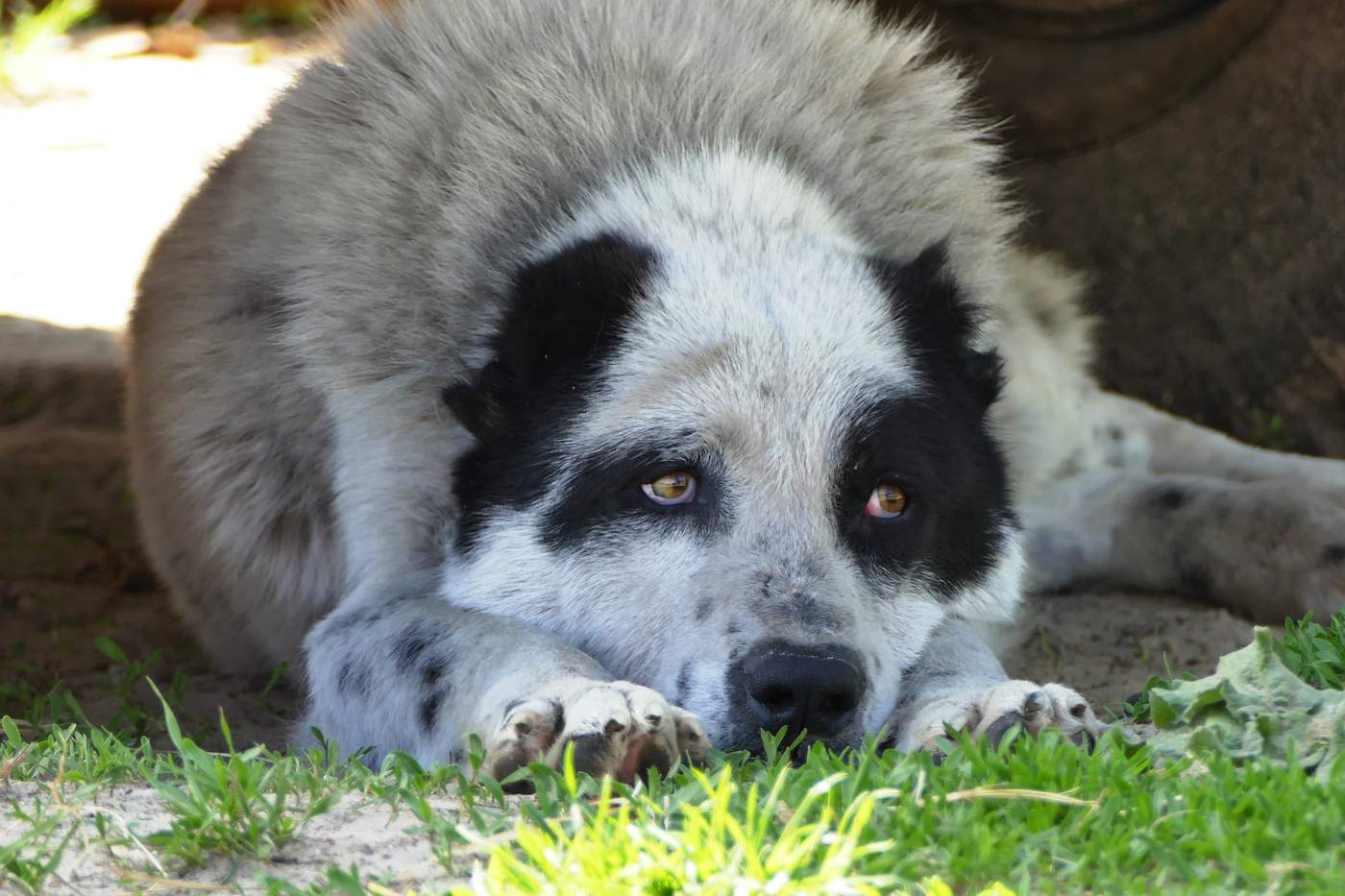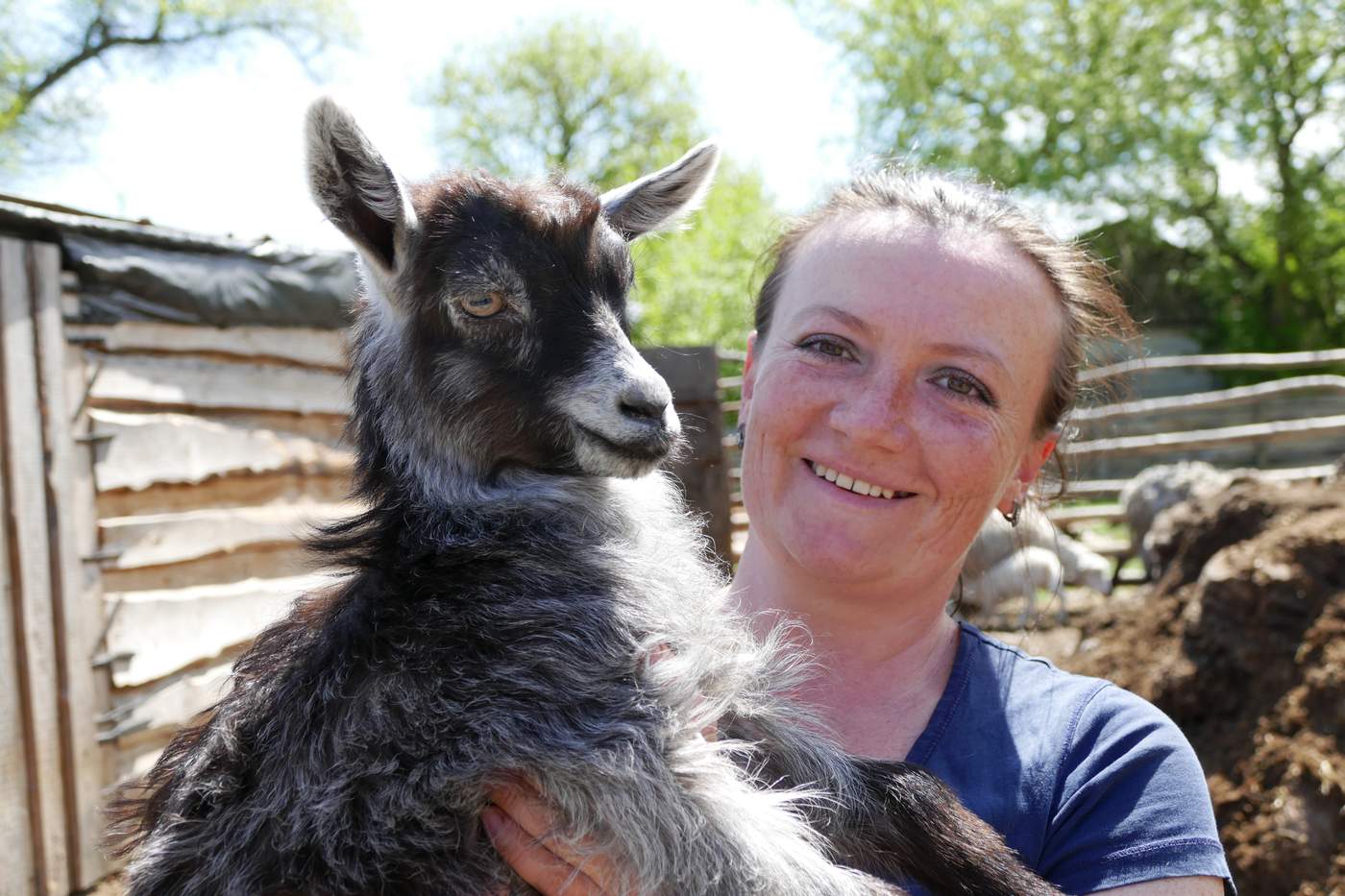By Varvara ZHLUKTENKO and Olga PUSTOVIT
May 2017
CALL OF THE WILD
Sergey and Elena were the ultimate biker couple. He tuned bikes for a living, she sold craft beer. In 2014 they fled the horrors of conflict in Eastern Ukraine and went back to nature.
There are over 1.5 million internally displaced persons registered in Ukraine. They all have stories to tell... If you can find them.
We know that Sergey, his wife Elena and 14-year-old son live in a remote place. Sergey even suggests meeting us at the highway, 200 kilometres from the nearest big city, Chernihiv, in Northern Ukraine.
"You might not find us. Someone stole the sign to the village," he explains over the phone.
But our GPS works, and we meander down the narrow, serpentine road to Sergey's property in the village of Pushkari. Elena roars up on her motorbike, a last remnant of their former lives. "You certainly live off the beaten track," we say.
"And we like it like that," she smiles. "Our neighbours are foxes, wolves and raccoons." She kick-starts her Ural bike and leads us down the ravine to their home.
For people from the city this is bucolic splendour. It's historical land, where mammoth used to roam. But now it's empty, quiet and sparsely populated.

Elena kick-starts her Ural bike and leads us down the ravine to their home.
When violent conflict engulfed their home town of Sverdlovsk, in Ukraine's Luhansk region in May 2014, the family headed to where they knew they would be safe. Years before, they used to camp in Pushkari.
The first thing they did was to sell the car they arrived in. "We bought six sheep: five ewes and one ram,” remembers Elena. "Now we have 47 sheep and goats, plus two acres of land for potatoes and other vegetables."

Sergey and Suleiman, a prize ram
The family is literally living from from the land. They get their wood from the nearby forest and hay is cut in the river-valley. During the growing season, they also sell some vegetables at the market in the nearby small town of Novhorod-Siverskyi.
Danil, the couple’s 14-year-old son, tends to the flock in the valley a few hundred metres from their house. The boy is enrolled in school 12 km away and uses a decrepit bus to get there. He doesn’t talk much about his classmates or studies. The slim boy, with eyes old beyond his years, is focused on his duties at the farm.
"I have no time to be bored," says Danil, who has learnt how to deliver lambs and kids on his own.

“Mama, that was Yulka’s voice,” he says to some distant bleating. He knows every animal by name, and even attends to the sheep or goats when they are in labour without the help of his parents.

King Billy taking a rest
His other friends are Begemot (Hippo) and Baron, a Central Asian shepherd dog and a cat. Initially the family brought two cats with them, but foxes killed the second one. However, Baron can defend himself, and somehow managed to make friends with a fox. Now they often play together in the meadow.

Begemot (Hippo) is always on duty, guarding Sergey's family and flock
But life is far from the rural idyll we imagine. Relations between the family and the local residents of Pushkari are complicated, Sergey admits, as he serves us milk and buns under a biker banner on the wall of their home.
Tensions started because of the villagers’ fear that Sergey’s sheep and goat farm would deprive them of pasture for their cows.
Later he tried to hire some young men to help him around the farm when he was suffering from heart problems. They had even made a deal but the guys did not show up the next day, or the day after. When Sergey finally saw them, celebrating something at the local pub, they suggested that he wanted to belittle them by making them work for him. Local authorities seem to be struggling with disputes between the villagers and Sergey’s family.
According to a recent IOM study, 18 per cent of displaced people in Ukraine have experienced discrimination.
Six months previously it was just nine per cent, indicating that social tensions in the communities are increasing fast. The majority said discrimination occurred in relation to property or employment, with only a fraction mentioning that interactions with the local population were negative or aggressive.
However, Sergey's family’s experiences illustrate the growing need for trust building and integration.
In the remote areas income opportunities are scarce for both displaced people and the host communities. Sergey tries to barter: he might fix a motor of a villager’s tractor, and ask for help with his crops instead of payment.
Both Sergey and Elena confess that they have lost weight substantially since they came here. “I could hardly climb that hill in 2014 and now I’m running to the top of it!” says Sergey.
Even so, he faced some heart problems and was hospitalized, following a day of working on his land.
The family has big plans for their future and sees the potential for agricultural development. They are already making their own cottage cheese for their personal consumption, and this year they would like to start producing hard cheese to sell at the market. This would be easier with technical equipment, and they also need a mower to gather hay to feed their growing flock. So the family is looking for more grant opportunities, as access to bank loans is problematic both for new entrepreneurs and for displaced people in Ukraine these days. Despite the fact that Sergey’s position was not to register as a displaced person (he says he wants to live and work “as an equal citizen of Ukraine”), the banks have so far been refusing him loans.

Each young she-goat gives 2.5 L milk a day now.
Elena hopes with hard work things will keep getting better.

Sergey’s family is among almost 5,000 displaced and conflict-affected people who have been supported by IOM with grants for micro-business, self-employment or vocational training from 2014 till spring 2017. IOM, supported by its donors, continues providing income opportunities for IDPs and host communities, and facilitating social cohesion and recovery in Ukraine.
Sergey says the family’s house is a century old, but remodeling it is not planned as it simply makes no sense. If they finally manage to ensure sustainable development and expand their farm business, they will start construction of a new house from scratch.

We are drinking goat milk, listening to the birds, and scrolling through old photos of biker shows. People in these photos are now on different sides of the conflict, but in the photos they are still friends.
Thinking and talking about the past is not easy for the family, and neither is contemplating the future. Trying to picture future prospects, we start discussing the problem of dying rural areas in Ukraine. “There are only about 150 people living in the village, and in a dozen years there will probably be no one here, only us,” says Sergey.
The tranquil beauty of Ukraine's Desna river, near Sergey and Elena's new home
“I want to keep listening to the birds in this virgin land.”
The biker gives us an example of the neighbouring village, where a businessman from eastern Ukraine managed to relocate his cow farm, and now the village is reviving.
“I want to invite other displaced people here, as I will need more help when my farm grows.
And you know, those of us from the cities notice and appreciate things local people are used to and do not appreciate anymore.”
However, not everyone is welcomed at Sergey’s land.
“Once, some guys from the East came to visit. We went to the bank of the Desna River with them, and they were stunned by the beauty of the river,” the biker recalls. The men suggested, as a business idea, building a sauna and inviting people from Chernihiv and Novhorod-Siverskyi to vacation there. Sergey said “No, let’s be frank, guys. You would open a ‘cabaret’ which does not fit here. I want to keep listening to the birds in this virgin land.”